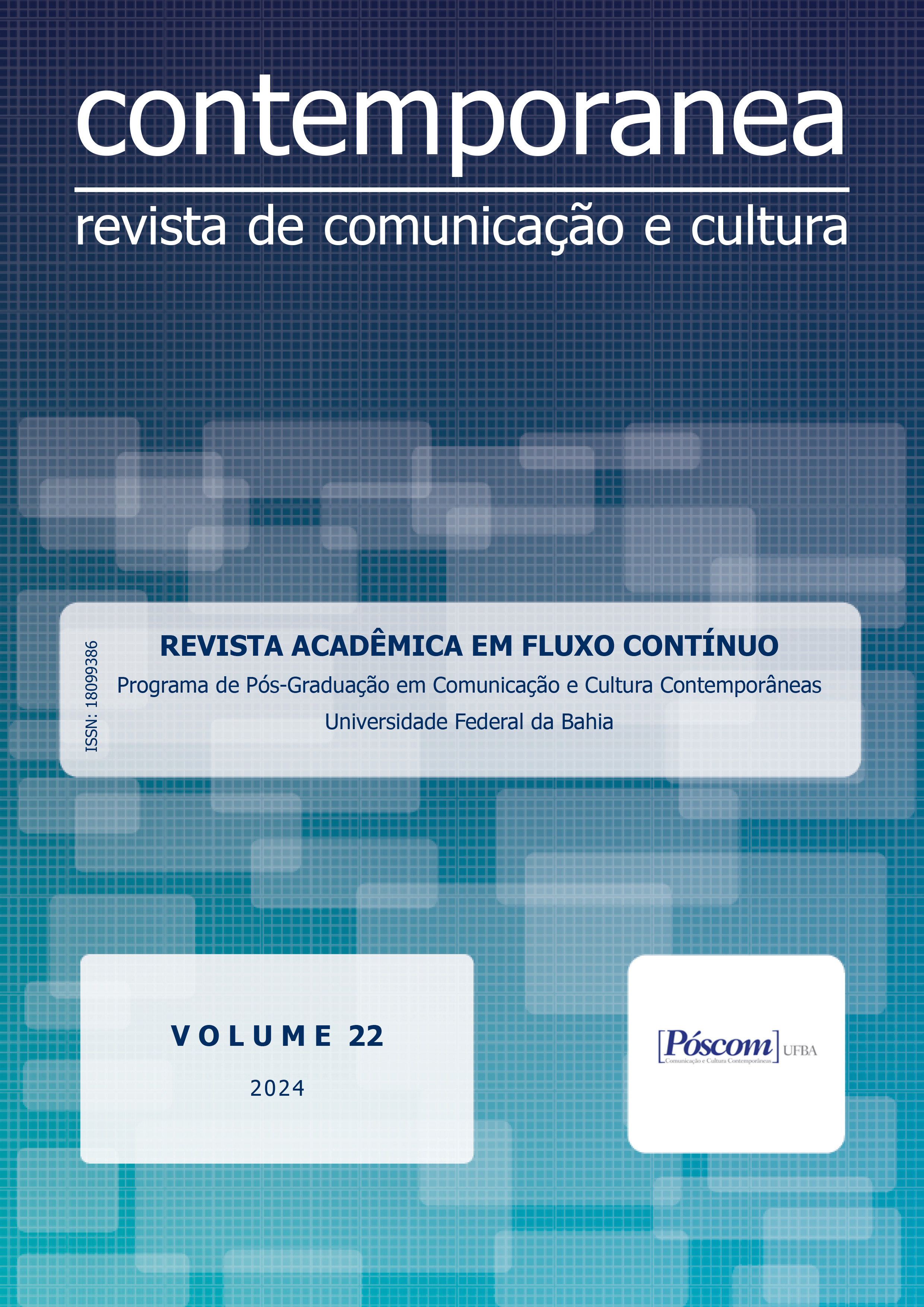DIGITAL TECHNOLOGIES AND THE RECONFIGURATION OF TRANSNATIONAL COMMUNICATION IN THE VALADARENSE MIGRATORY EXPERIENCE
DOI:
https://doi.org/10.9771/contemporanea.v22i1.63456Keywords:
Transnational families, Migration, Communication, Governador Valadares, United StatesAbstract
This article presents an analysis of the transnational communication process in light of the transformation brought about by digital technologies, focusing on human, subjective, and territorial dimensions. Adopting a qualitative approach and using the Oral History method, the empirical material consists of interviewswith two women, with family ties of mother and daughter, the daughter being the one who migrated to the United States in 2002 and the mother the one who remained living in Brazil, in Governador Valadares. The theoretical analysis integrates perspectives from the areas of communication, migration, and information technology through the approach of territorial studies. For the evaluation of the interviews, Content Analysis was applied, having as thematic categories the evolution of media in communication and the affective and emotional connection between mother and daughter. It was found, from the experience lived by the study participants, that the evolution of communication and digital technologies affected the migration experience, with beneficial changes in the emotional and social aspects of the bond between the interviewees. Currently, through digital technologies, it was observed that new relationships were established in the lived territories, with real-time interaction being part of the daily lives of both. Thus, the transformation of the communication process, from digital technologies, can provide a more accessible and updated relationship between the migrant and the family, enabling more frequent contacts.
Downloads
References
ASSIS, Gláucia de Oliveira. Estar aqui, Estar lá...: Uma cartografia da vida em dois lugares. 1995. Dissertação (Mestrado em Antropologia Social) – Programa de Pós Graduação em Antropologia Social, Universidade Federal de Santa Catarina, Florianópolis, 1995.
BARDIN, Laurence. Análise de Conteúdo. São Paulo: Edições 70, 2011.
BRISOLA, Elisa Maria Andrade; MARCONDES, Nilsen Aparecida Vieira. A História oral enquanto metodologia dentro do universo da pesquisa qualitativa: um foco a partir da análise por triangulação de métodos. Revista Ciências Humanas, v. 4, n. 1, 2011.
CARVAJAL, Julia Cerda. Las familias transnacionales. Espacios transnacionales, v. 1, n. 2, 2014.
ELHAJJI, Mohammed. O intercultural migrante: teorias & análises. Porto Alegre: Editora Fi, 2023.
FUINI, Lucas Labigalini. O território em Rogério Haesbaert: concepções e conotações. Geografia, Ensino & Pesquisa, v. 21, n. 1, p. 19-29, 2017.
HAESBAERT, Rogério. O mito da desterritorialização: do “fim dos territórios” à multiterritorialidade. 4. ed. Rio de Janeiro: Bertrand Brasil, 2009.
HAESBAERT, Rogério. Território. GEOgraphia, Niterói, v. 25, n. 55, p. 1-7, dez., 2023.
HARVEY, David. Condição pós-moderna: uma pesquisa sobre as origens da mudança cultural. Edições Loyola, 1992.
LÉVY, Pierre. Cibercultura. 3. ed. São Paulo: Editora 34, 2010.
MAGALHÃES, Valéria Barbosa de (org.). História Oral e migrações: Método, memória, experiências. São Paulo: Letra e Voz, 2017.
MARGOLIS, Maxine L. Little Brasil: Imigrantes brasileiros em Nova York. Campinas: Papirus, 1994.
MARTINO, Luís Mauro Sá. Teoria das Mídias Digitais: Linguagens, ambientes, redes. 2. ed. Petrópolis: Vozes, 2015.
MEIHY, José Carlos Sebe Bom; RIBEIRO, Suzana L. Salgado. Guia Prático de História Oral: para empresas, universidades, comunidades, famílias. São Paulo: Contexto, 2011.
SALES, Teresa. Brasileiros longe de casa. São Paulo: Cortez, 1999. SANTAELLA, Lucia. Culturas e Artes do Pós-humano: da Cultura das Mídias à Cibercultura. São Paulo: Paulus, 2013.
SIQUEIRA, Sueli. Sonhos, sucesso e frustrações na emigração de retorno: Brasil/Estados Unidos. Belo Horizonte: Argumentum, 2009.
Downloads
Published
How to Cite
Issue
Section
License
Copyright (c) 2024 Wilson Ribeiro Domingos Junior, Cristiane Mendes Netto, Franco Dani Araújo e Pinto, Sueli Siqueira

This work is licensed under a Creative Commons Attribution-ShareAlike 4.0 International License.
Os autores que publicam nessa revista devem concordar com os seguintes termos relativos aos Direitos Autorais:
Autores mantém os direitos autorais e concedem à revista Contemporanea e à Faculdade de Comunicação da Universidade Federal da Bahia o direito de primeira publicação, com o trabalho simultaneamente licenciado sob a Licença Creative Commons Attribution que permite o compartilhamento do trabalho com reconhecimento da autoria e publicação inicial nesta revista.
Autores têm autorização para assumir contratos adicionais separadamente, para distribuição não-exclusiva da versão do trabalho publicada nesta revista (ex.: publicar em repositório institucional ou como capítulo de livro), com reconhecimento de autoria e publicação inicial nesta revista.
Autores têm permissão e são estimulados a publicar e distribuir seu trabalho online (ex.: em repositórios institucionais ou na sua página pessoal) a qualquer ponto antes ou durante o processo editorial, já que isso pode gerar alterações produtivas, bem como aumentar o impacto e a citação do trabalho publicado.


